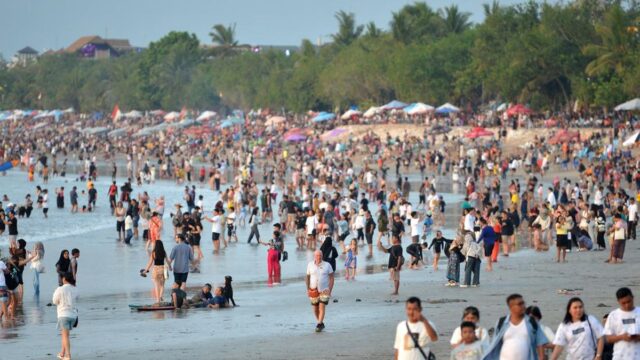Fodor’s Travel – the long-standing publisher since 1936 of print and online travel guides and tourism information, has to its credit more than 440 guides covering 300 global destinations.
Globally employing more than 700 researchers, Fodor annually publishes its infamous “No List” of destinations that have sadly fallen victim to their own popularity and have been overwhelmed by the “quantity” represented in tourist arrival numbers and, in the process, have abandoned any concept of “quality of life” for residents and visitors.
According to Fodor, symptoms of the resulting changes that have, often irreversibly, changed a destination are prohibitively high prices and creeping insidious homogenization. The once historically famous charm and warm welcome extended to visitors is now supplanted by a sense of grudging acceptance bordering on hostility towards the hoards of interloping holidaymakers. Destinations on Fodor’s “No List” are often polluted, crowded with vehicular and pedestrian traffic, and characterized by pathways strewn with trash jettisoned helter-skelter by each successive wave of tourist visitors.


Bali Named Among the Worst of the Worst?
Doubly shocking in Fodor’s 2025 No List is that Bali is doubly damned by being positioned at the very top of the list and also identified as “perennial” – a subspecies on the list where things are getting worse with little or no hope of redemption.
Fodor condemns Bali, saying: “Rapid, unchecked development spurred by overtourism is encroaching on Bali’s natural habitats, eroding its environmental and cultural heritage, and creating a ‘plastic apocalypse.'”
“Rapid, unchecked development spurred by overtourism is encroaching on Bali’s natural habitats, eroding its environmental and cultural heritage, and creating a ‘plastic apocalypse.’”
Fodor Travel – 2025 No – Go List
Fodor describes how Bali is trapped within “a fragile, circular relationship: Bali’s economy thrives on hospitality, which relies on the health of its natural landscapes.”
The travel guide authority underlines how the rapid post-pandemic tourism economy recovery is placing “overwhelming pressure on Bali’s infrastructure,” with waste management systems failing to keep up with mounting piles of refuse and trash. The battle lost, Bali is now confronting the consequences of its mindless pursuit of “economic growth, prioritizing short-term profits over long-term sustainability.”
Fodor quotes Kristin Winkaffe, a sustainable travel expert focusing on Southeast Asia, who warns: “Overtourism affects the very core of Balinese life. Traditional practices like the subak irrigation system, which has supported rice paddies for centuries, are now under strain as water is diverted to tourist areas.” She adds, “Without change, we’re risking more than just beautiful scenery—we’re at risk of losing cultural identity itself.”
Bali’s inclusion on Fodor’s “No List” is the second time since 2020 that the Island has been singled out for dubious honor.
Other global destinations named to Fodor’s “No List” or “Destinations Beginning to Suffer” and therefore in imminent threat of inclusion to the “No Go” listing include:
- Barcelona, Spain
- Venice, Italy
- Lison, Portugal
- Koh Samui, Thailand
- Mount Everest, Nepal/PRC
- Arigento, Sicily, Italy
- British Virgin Islands
- Kerala, India
- Kyoto and Tokyo, Japan
- Oaxaca, Mexico
- Scotland’s North Coast

Related Links
Tourism Boosts Bali’s Economy +5.43%
President Prabowo: Bali the ‘New Singapore’
KFC Indonesia Axes 2,274, Closes 47 Outlets
New RI Tourism Minister Outlines Key Goals
Escalating Overtourism in Bali
Equitable Approach to Tourism Development
Stay Informed on Bali Tourism-Related News: Subscribe to Bali Update

